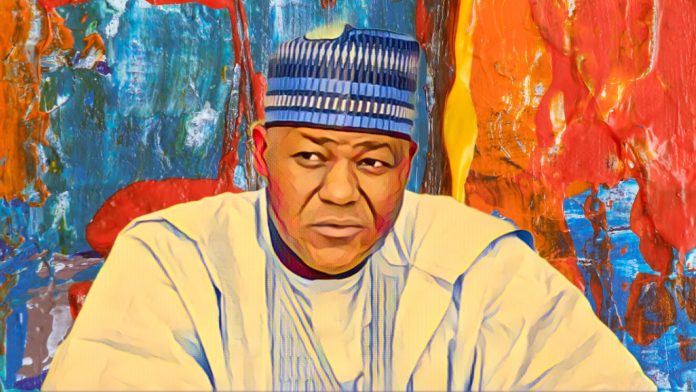Former Speaker of the House of Representatives, Yakubu Dogara, has stated that Nigeria can generate N16.2 trillion annually from palm oil production. He urged President Bola Tinubu to invest in this sector now, projecting significant returns within five years. Dogara highlighted the potential of large-scale farming to lift many Nigerians out of poverty.
Speaking at a meeting with the National Association of Palm Producers of Nigeria (NPPAN) in Abuja, Dogara explained that Nigeria could revive palm oil cultivation by engaging 2.5 million households. Each household would cultivate one hectare, generating N5 million annually. This would result in a total of N16.2 trillion per year within five years.
Dogara called for an investigation into the oil palm levy established by former President Olusegun Obasanjo. He urged President Tinubu and the National Assembly to clarify the status and administration of these funds, which are reportedly held in the Central Bank of Nigeria (CBN). Dogara emphasized the need for transparency and accountability regarding these funds.
During his 16 years in the National Assembly, Dogara did not focus on the oil palm levy, although it was instituted in 2001. He stressed the importance of the National Assembly investigating the status of the funds. If the money is available, it could significantly support the palm oil industry’s development. If not, those responsible should face consequences.
Dogara suggested that President Tinubu establish a presidential implementation committee on oil palm development. Regular briefings on progress would ensure transparency and accountability. Dogara believes this venture could take many families out of poverty and contribute to Nigeria’s economic growth.
NPPAN Chairman, Ambassador Alphonsus Infant, honored Dogara as the National Patron of the Association. He praised Dogara as a skilled negotiator of policies who could help restore Nigeria’s prominence in the palm oil market. In the 1960s, Nigeria controlled 60% of the world’s palm oil production and export. However, the discovery of petroleum led to a decline in the palm oil industry.
Indonesia now produces 80 million tonnes of palm oil per year, Malaysia 19.2 million tonnes, China 5 million tonnes, and Colombia 1.2 million tonnes. In contrast, Nigeria produces only 1.4 million tonnes per year. This position is at risk, as India has declared a policy to convert two million hectares of rice farms into oil palm estates.
Dogara’s call for investment in palm oil production aligns with global trends. Countries like Indonesia and Malaysia have successfully capitalized on their palm oil industries, contributing significantly to their economies. Nigeria has the potential to regain its status as a leading palm oil producer.
The palm oil industry can provide numerous benefits, including job creation, poverty alleviation, and increased export revenue. It also offers opportunities for value-added products, such as cosmetics, biofuels, and food products. By investing in this sector, Nigeria can diversify its economy and reduce its reliance on oil exports.
For Nigeria to achieve this potential, the government must address challenges such as land tenure issues, access to finance, and infrastructure development. Providing support to smallholder farmers and encouraging private-sector investment will be crucial. Additionally, addressing environmental concerns and promoting sustainable practices will ensure the long-term viability of the industry.
Nigeria’s palm oil industry has a rich history and significant untapped potential. With the right policies and investments, it can become a major contributor to the nation’s economy. Dogara’s call to action highlights the urgency of reviving this sector and harnessing its benefits for the Nigerian people.



